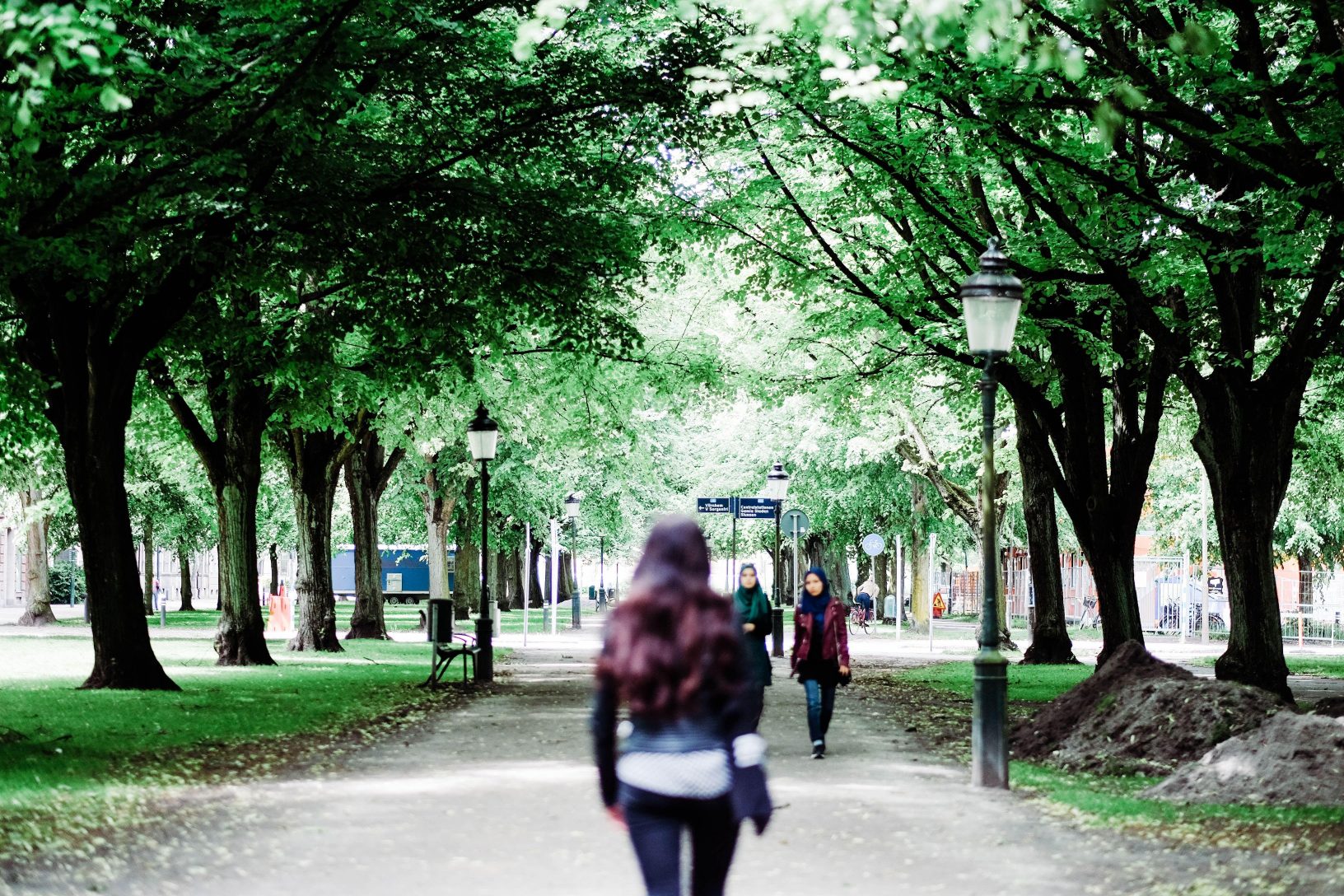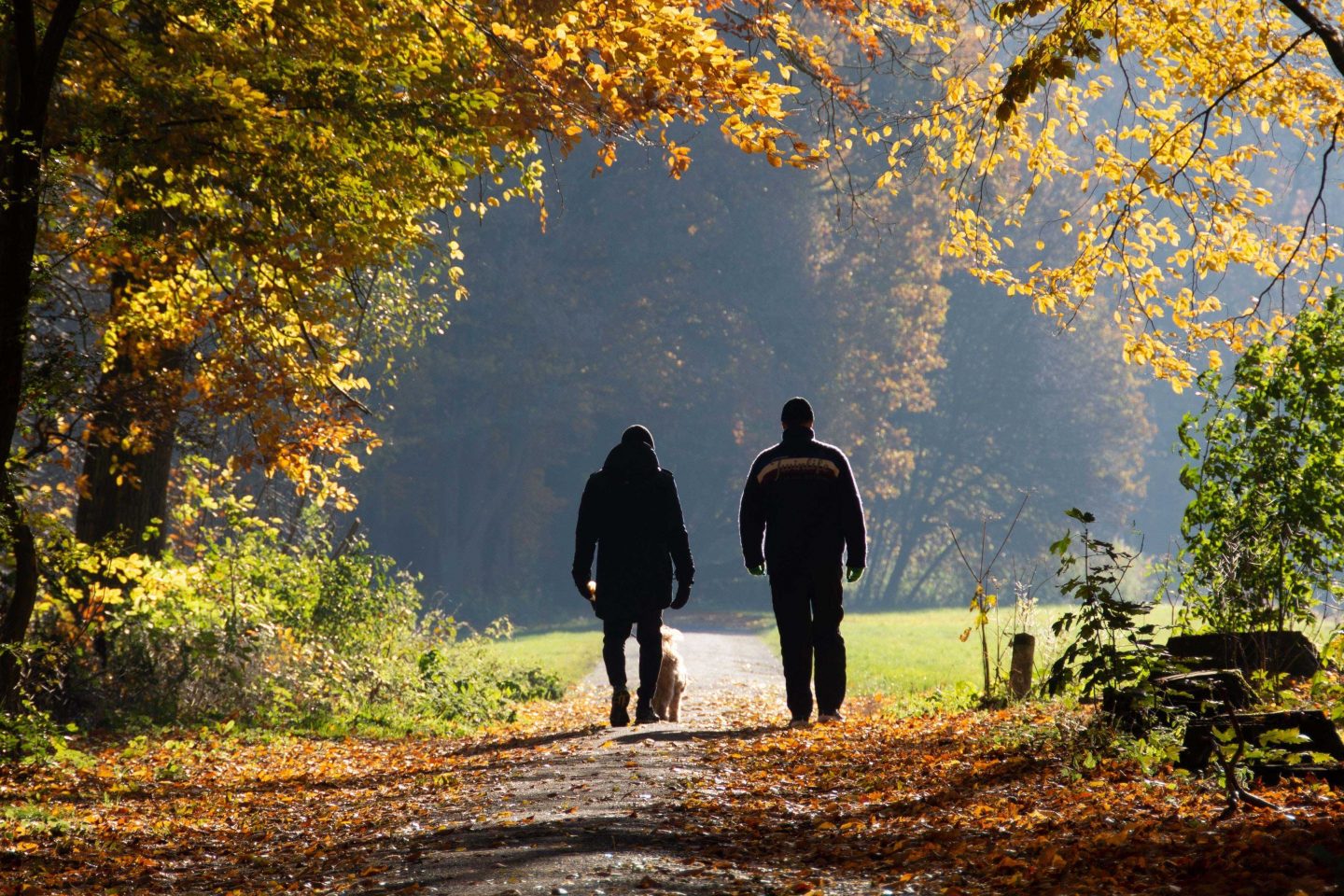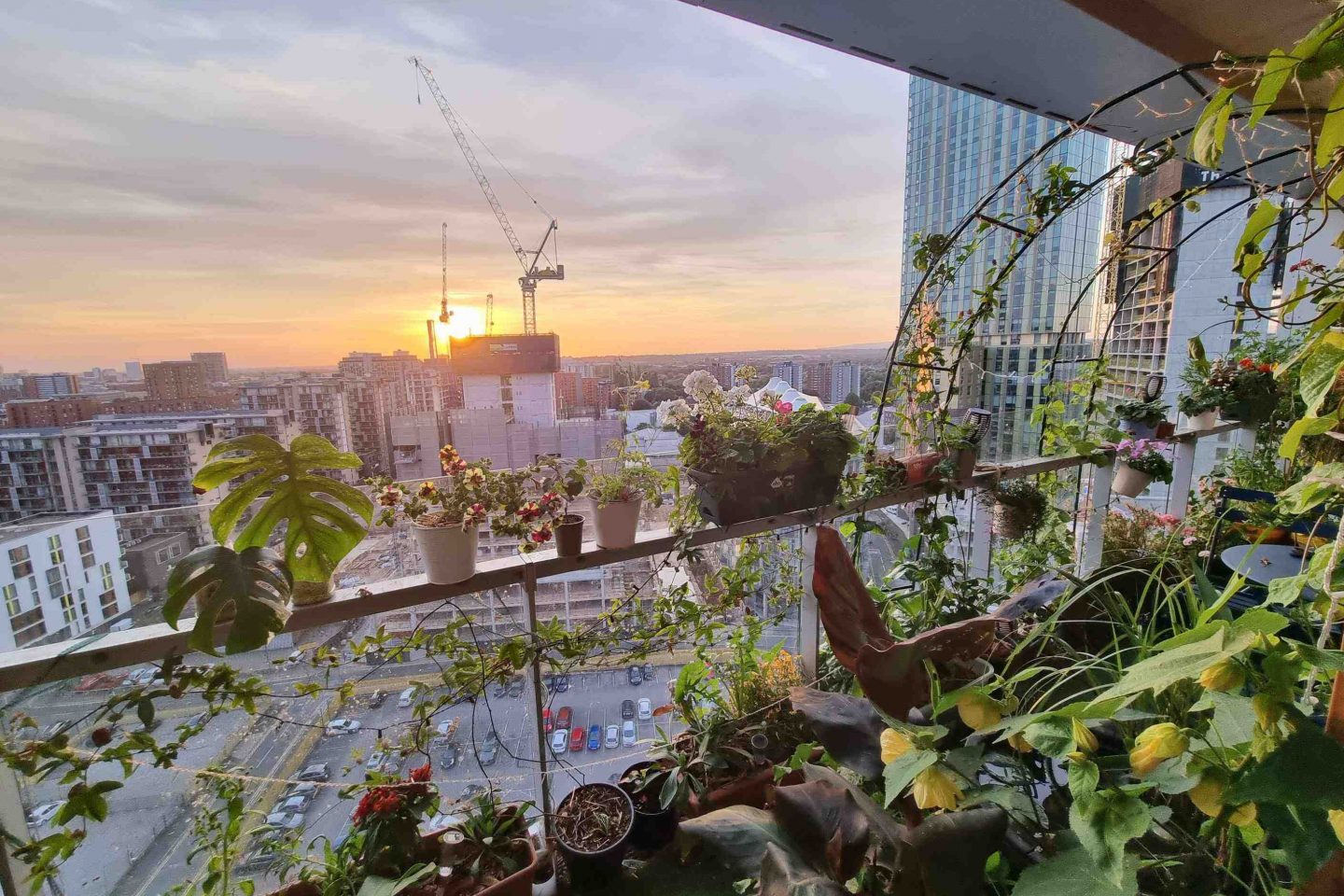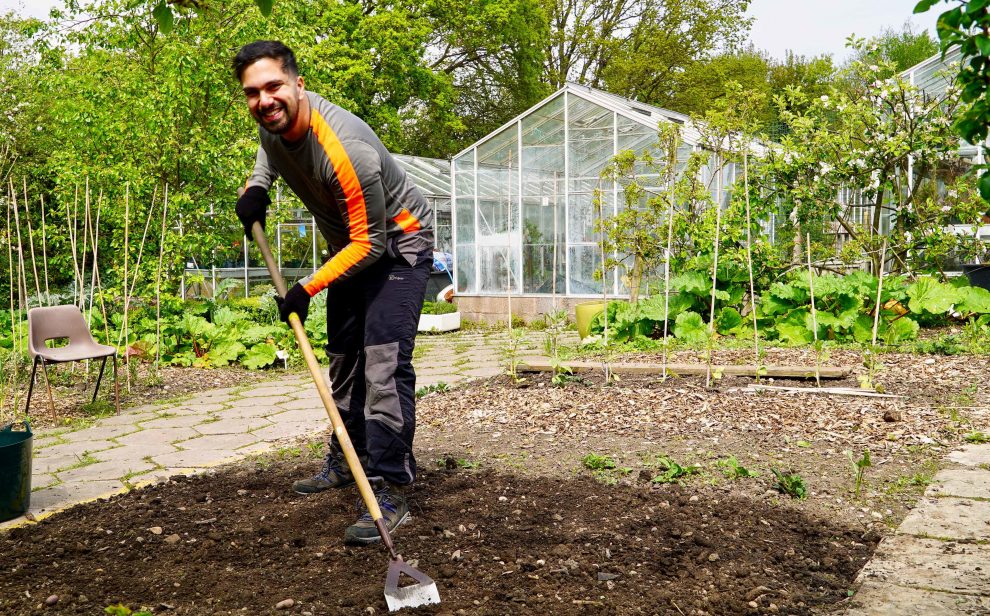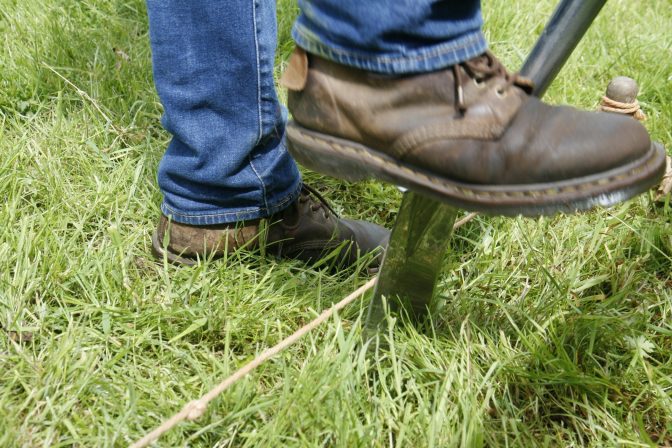There’s evidence that time in nature can make us feel refreshed. It helps our brains release serotonin and cortisol. These chemicals regulate our body’s response to stress.
Many people come to Thrive to join a Social & Therapeutic Horticulture (STH) programme. They experience how time in a garden can improve their mood and wellbeing. People often continue with activities in nature after their programme ends.
Damien Newman, Thrive Training, Education and Consultancy Manager, says: “Most people feel better for being outside. Most of us recognise the relaxation that time in nature provides. Despite this, few people use it as a strategy for mental wellness. Given that access to gardens and nature can be free, not making the most of it is a missed opportunity.”
“We want to see more people using gardening to maintain good health,” continues Damien. “Gardens are safe spaces. We can get a tremendous sense of purpose from nurturing plants. And, there are a huge variety of gardening activities. There is always a way to focus on what we can do, rather than what we can’t.”


